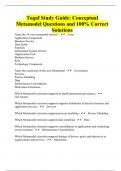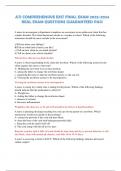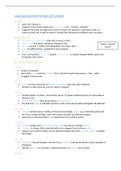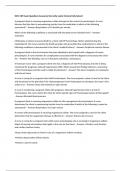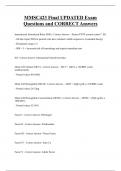SE104 Sports Psychology Charlotte Gowers
What difference can a Sports Psychologist make to sporting performance?
Sport psychologists overall aim is helping athletes to perform better and more consistently,
improving the experience of participation in sport and looking into subjects such as coach behaviour
and communication skills (1). Negative psychological factors can massively impact the performance
of an athlete, whether that is in training, learning and executing skills, or even how the athlete feels
about their own fitness levels and the ability to improve performance. The idea behind an athlete
having a Sport Psychologist is that these negative psychological factors are alleviated and therefore
allowing for psychological progression and subsequently leading to improvements in physical sports
performance. But how significant of a difference does this make?
A meta-analysis was conducted by Daniel J. Brown and David Fletcher (2) into whether Psychological
and psychosocial interventions had any effects on sporting performance. Randomized control trials
were selected through online data bases, searching through journals and other methods looking at
studies involving psychological, social and psychosocial interventions and how they affected
performance and was evaluated when compared to a control group. They measured standardized
mean difference, meta-regressions and trim and fill analyses of these studies to conclude general
information and effects found. One of the studies they looked at in the meta-analysis was conducted
by Hazel et al (2014) and looked at how psychological interventions such as pre-performance
routines affected penalty taking accuracy, there were also a large range of abilities and different
sports making the study more reliable in its findings. They concluded from results that psychological
and psychosocial interventions were shown to enhance sport performance at post-test (k = 35, n =
997, Hedges' g = 0.57, 95 % CI = 0.22-0.92) and follow-up assessments (k = 8, n = 189, Hedges' g =
1.16, 95 % CI = 0.25-2.08). They therefore concluded that psychological interventions from all the
studies had a moderate positive affect on sporting performance, and the effect would last around a
month after the intervention had finished. Therefore, this showing that sports psychologists can
improve sporting performance.
Psychological skills training
A technique used by sports psychologists are Psychological Skills Training. “Psychological skills
training refers to the systematic and consistent practice of mental or psychological skills for
enhancing performance, increasing enjoyment, or achieving greater sport and physical activity self-
satisfaction’’ (3). These include maintaining concentration, regulating arousal, enhancing motivation
and confidence to overall improve ‘mental toughness’. Psychological skills training should be
performed for 10- 15 minutes per day 3-5 days a week and should be carried out by a sports
psychologist. Weinberg and Gould (4) conducted a study to see if there were any effects of
Psychological Skills Training on swimming performance and psychological development. National
swimmers in the North of England took part in a 7-week intervention of psychological skills training.
They found that 64% improved their overall performance by improving times in a range of swimming
events and still showing improvements after their one-month follow-up. This evidence isn’t wholly
reliable as there was no control group but, this study does give evidence that sports psychologists
working with Swimmers improved their overall performance.
Improving self-confidence
Psychological skills training can work to improve self-confidence in terms of how they think they can
perform, in sports psychology this is known as self-efficacy. Self-efficacy theory is a model proposed
by Psychologist Albert Bandura (5) that gives a guideline to how confidence can affect performance.
The theory is based upon your belief in how well you can perform a task. Bandura states that self-
efficacy comes from 6 sources, these include: Performance accomplishments, Demonstration, Verbal
persuasion, Imagery, Psychological states and emotional states. This meaning that if you have done
What difference can a Sports Psychologist make to sporting performance?
Sport psychologists overall aim is helping athletes to perform better and more consistently,
improving the experience of participation in sport and looking into subjects such as coach behaviour
and communication skills (1). Negative psychological factors can massively impact the performance
of an athlete, whether that is in training, learning and executing skills, or even how the athlete feels
about their own fitness levels and the ability to improve performance. The idea behind an athlete
having a Sport Psychologist is that these negative psychological factors are alleviated and therefore
allowing for psychological progression and subsequently leading to improvements in physical sports
performance. But how significant of a difference does this make?
A meta-analysis was conducted by Daniel J. Brown and David Fletcher (2) into whether Psychological
and psychosocial interventions had any effects on sporting performance. Randomized control trials
were selected through online data bases, searching through journals and other methods looking at
studies involving psychological, social and psychosocial interventions and how they affected
performance and was evaluated when compared to a control group. They measured standardized
mean difference, meta-regressions and trim and fill analyses of these studies to conclude general
information and effects found. One of the studies they looked at in the meta-analysis was conducted
by Hazel et al (2014) and looked at how psychological interventions such as pre-performance
routines affected penalty taking accuracy, there were also a large range of abilities and different
sports making the study more reliable in its findings. They concluded from results that psychological
and psychosocial interventions were shown to enhance sport performance at post-test (k = 35, n =
997, Hedges' g = 0.57, 95 % CI = 0.22-0.92) and follow-up assessments (k = 8, n = 189, Hedges' g =
1.16, 95 % CI = 0.25-2.08). They therefore concluded that psychological interventions from all the
studies had a moderate positive affect on sporting performance, and the effect would last around a
month after the intervention had finished. Therefore, this showing that sports psychologists can
improve sporting performance.
Psychological skills training
A technique used by sports psychologists are Psychological Skills Training. “Psychological skills
training refers to the systematic and consistent practice of mental or psychological skills for
enhancing performance, increasing enjoyment, or achieving greater sport and physical activity self-
satisfaction’’ (3). These include maintaining concentration, regulating arousal, enhancing motivation
and confidence to overall improve ‘mental toughness’. Psychological skills training should be
performed for 10- 15 minutes per day 3-5 days a week and should be carried out by a sports
psychologist. Weinberg and Gould (4) conducted a study to see if there were any effects of
Psychological Skills Training on swimming performance and psychological development. National
swimmers in the North of England took part in a 7-week intervention of psychological skills training.
They found that 64% improved their overall performance by improving times in a range of swimming
events and still showing improvements after their one-month follow-up. This evidence isn’t wholly
reliable as there was no control group but, this study does give evidence that sports psychologists
working with Swimmers improved their overall performance.
Improving self-confidence
Psychological skills training can work to improve self-confidence in terms of how they think they can
perform, in sports psychology this is known as self-efficacy. Self-efficacy theory is a model proposed
by Psychologist Albert Bandura (5) that gives a guideline to how confidence can affect performance.
The theory is based upon your belief in how well you can perform a task. Bandura states that self-
efficacy comes from 6 sources, these include: Performance accomplishments, Demonstration, Verbal
persuasion, Imagery, Psychological states and emotional states. This meaning that if you have done

